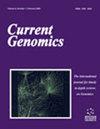Deacetylation of Histones and Non-histone Proteins in Inflammatory Diseases and Cancer Therapeutic Potential of Histone Deacetylase Inhibitors
IF 1.4
4区 生物学
Q4 BIOCHEMISTRY & MOLECULAR BIOLOGY
引用次数: 0
Abstract
abstract: Epigenetic changes play an important role in the pathophysiology of autoimmune diseases such as allergic asthma, multiple sclerosis, lung diseases, diabetes, cystic fibrosis, atherosclerosis, rheumatoid arthritis, and COVID-19. There are three main classes of epigenetic alterations: post-translational modifications of histone proteins, control by non-coding RNA and DNA methylation. Since histone modifications can directly affect chromatin structure and accessibility, they can regulate gene expression levels. Abnormal expression and activity of histone deacetylases (HDACs) have been reported in immune mediated diseases. Increased acetylated levels of lysine residues have been suggested to be related to the overexpression of inflammatory genes. This review focuses on the effect of HDAC modifications on histone and non–histone proteins in autoimmune diseases. Furthermore, we discuss the potential therapeutic effect of HDAC inhibitors (HDACi) used in these diseases.组蛋白去乙酰化和非组蛋白去乙酰化在炎症疾病和癌症中的治疗潜力
表观遗传变化在变应性哮喘、多发性硬化、肺部疾病、糖尿病、囊性纤维化、动脉粥样硬化、类风湿性关节炎和COVID-19等自身免疫性疾病的病理生理中发挥重要作用。表观遗传改变主要有三类:组蛋白翻译后修饰、非编码RNA控制和DNA甲基化。由于组蛋白修饰可以直接影响染色质结构和可及性,因此它们可以调节基因表达水平。组蛋白去乙酰化酶(hdac)的异常表达和活性在免疫介导的疾病中有报道。赖氨酸残基乙酰化水平的增加被认为与炎症基因的过度表达有关。本文综述了HDAC修饰对自身免疫性疾病中组蛋白和非组蛋白的影响。此外,我们还讨论了HDAC抑制剂(HDACi)在这些疾病中的潜在治疗效果。
本文章由计算机程序翻译,如有差异,请以英文原文为准。
求助全文
约1分钟内获得全文
求助全文
来源期刊

Current Genomics
生物-生化与分子生物学
CiteScore
5.20
自引率
0.00%
发文量
29
审稿时长
>0 weeks
期刊介绍:
Current Genomics is a peer-reviewed journal that provides essential reading about the latest and most important developments in genome science and related fields of research. Systems biology, systems modeling, machine learning, network inference, bioinformatics, computational biology, epigenetics, single cell genomics, extracellular vesicles, quantitative biology, and synthetic biology for the study of evolution, development, maintenance, aging and that of human health, human diseases, clinical genomics and precision medicine are topics of particular interest. The journal covers plant genomics. The journal will not consider articles dealing with breeding and livestock.
Current Genomics publishes three types of articles including:
i) Research papers from internationally-recognized experts reporting on new and original data generated at the genome scale level. Position papers dealing with new or challenging methodological approaches, whether experimental or mathematical, are greatly welcome in this section.
ii) Authoritative and comprehensive full-length or mini reviews from widely recognized experts, covering the latest developments in genome science and related fields of research such as systems biology, statistics and machine learning, quantitative biology, and precision medicine. Proposals for mini-hot topics (2-3 review papers) and full hot topics (6-8 review papers) guest edited by internationally-recognized experts are welcome in this section. Hot topic proposals should not contain original data and they should contain articles originating from at least 2 different countries.
iii) Opinion papers from internationally recognized experts addressing contemporary questions and issues in the field of genome science and systems biology and basic and clinical research practices.
 求助内容:
求助内容: 应助结果提醒方式:
应助结果提醒方式:


